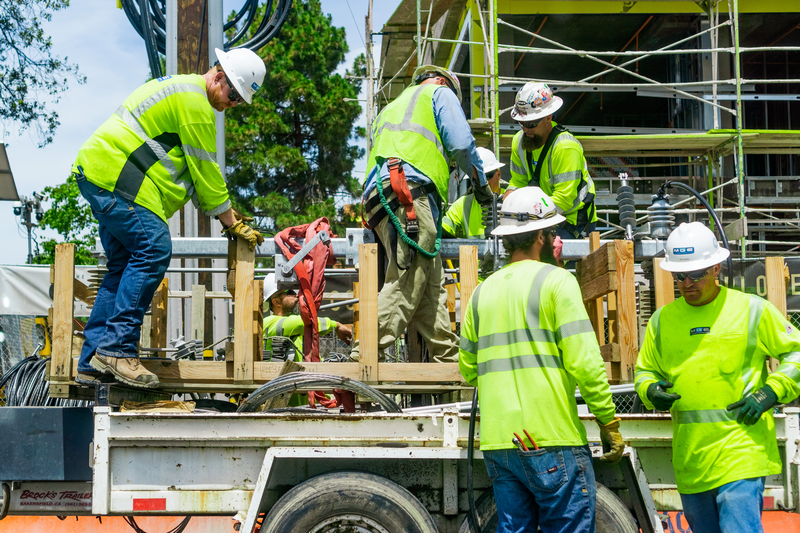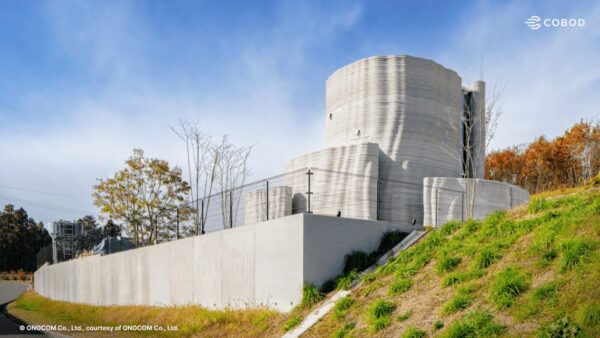
The Associated General Contractors of America (AGC) has joined a number of US national construction bodies throwing their weight behind a bipartisan bill that would give visas to migrant workers in sectors, like construction, that are facing acute skills shortages.
The “Essential Workers for Economic Advancement Act”, or EWEA, would provide temporary visas valid for three years, with two potential three-year renewals.
Introduced to the House by Pennsylvania Republican Representative Lloyd Smucker, the bill is co-sponsored by 10 members of Congress including three Democrats.
It’s the second time EWEA has been introduced to the House.
How it would work
In its first year, EWEA would offer 65,000 so-called H-2C visas. In subsequent years, the number available could fluctuate between 45,000 and 85,000 depending on economic and market conditions.
To protect American workers, the visas would be available only in areas where the unemployment rate is 7.9% or less. Where it’s higher than that, companies would have to hire local.
This casts the net widely because, at the moment, the national unemployment rate is 4.3% and no individual state has a jobless rate above 6%, according to the Bureau of Labor Statistics (BLS).
Drilling further down, just 10 out of 387 metropolitan areas – around 2.6% of the total – have jobless rates above 7.9%, BLS reports.
Employers would have to show that a position has gone unfilled for three consecutive months, or was open for 60 days within a 90-day period. Employers must also use E-Verify.
To qualify for an H-2C visa, applicants must receive a job offer from EWEA-registered employers, and pass a criminal or national security background check.
They can’t bring family into the US, and they can’t be from a country that “supports international terrorism, as determined by the Secretary of State”, according to Rep. Smucker’s announcement.
Labour shortages are causing delays
The AGC has long called for a legal pathway for migrants to work in construction.
In a survey last month, it found that 45% of firms say labour shortages are causing project delays, while 92% of contractors said they were having a hard time filling open positions.
It also found that that 28% of respondents reported being affected directly or indirectly by ICE raids initiated by President Trump after taking office in January.
“Establishing a visa program for construction occupations provides the kind of lawful, temporary, traceable and taxable pathway needed to serve as a short-term solution while we rebuild the domestic pipeline for preparing new construction workers,” said AGC chief executive, Jeffrey D. Shoaf.
More cash for trainers
Shoaf also endorsed a second piece of legislation Smucker introduced that would give individuals a tax credit of up to $1,700 a year for cash donations to eligible nonprofit organisations that offer workforce development or apprenticeship training programs.
The “USA Workforce Investment Act” would incentivise donations to training programs offered by educational institutions, community organisations, and union-affiliated nonprofits.
Announcing the bill, Smucker said the federal government currently spends $111.3bn a year on four-year college degree programs but only $28.2bn on career and technical college and training.
The AGC’s Shoaf said: “But even if Congress were to significantly boost funding for construction education and training tomorrow, it would still take years for schools and training centres to provide the number of workers construction firms need.”
Multiple sectors back this
In supporting EWEA, the AGC joins other construction bodies including the National Roofing Contractors Association, Associated Builders and Contractors, Leading Builders of America, and Construction Leadership Council.
Groups in other sectors such as hotel and catering, retail and landscaping also support EWEA.
- Subscribe here to get stories about construction around the world in your inbox three times a week
See also:






